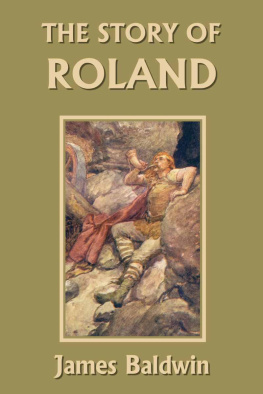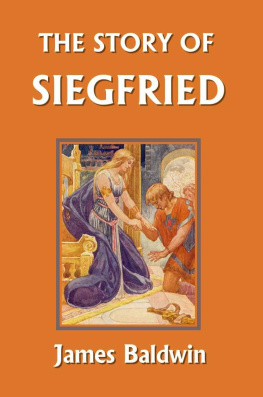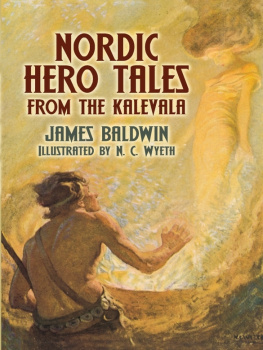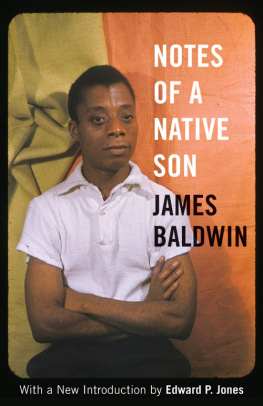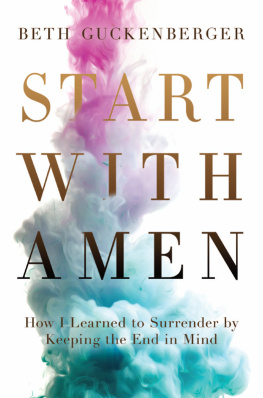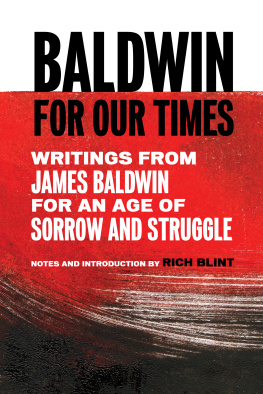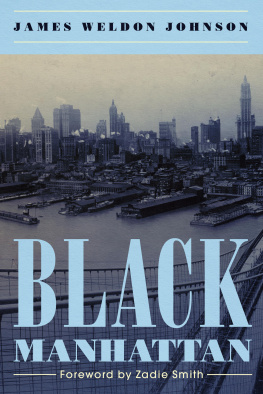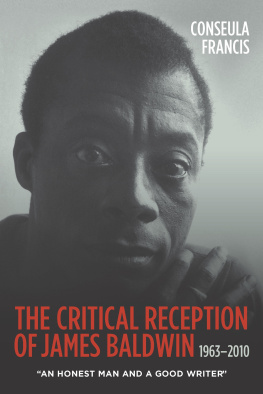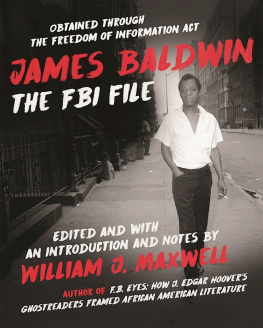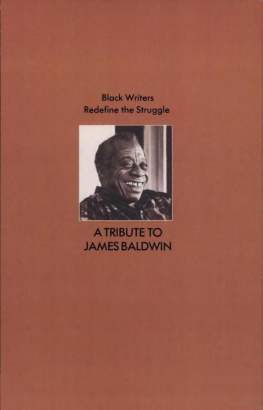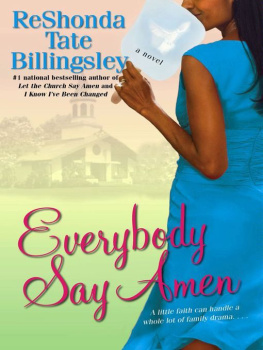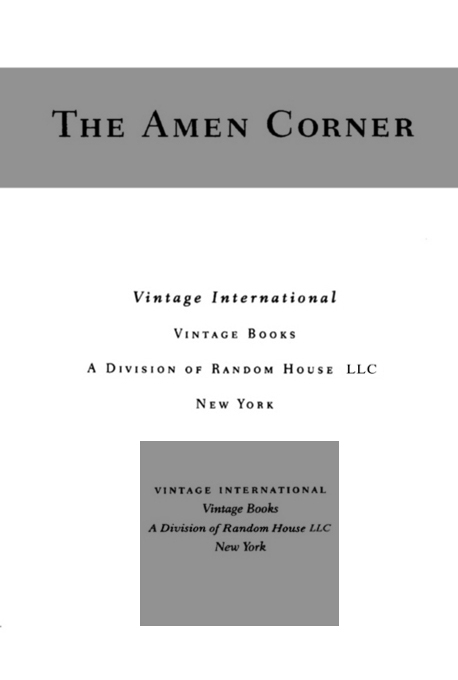James Baldwin was born in 1924. He is the author of more than twenty works of fiction and nonfiction. Among the awards he received are a Eugene F. Saxon Memorial Trust Award, a Rosenwald Fellowship, a Guggenheim Fellowship, a Partisan Review Fellowship, and a Ford Foundation grant. He was made Commander of the Legion of Honor in 1986. He died in 1987.
FIRST VINTAGE INTERNATIONAL EDITION, FEBRUARY 1998
Copyright 1968 by James Baldwin
Copyright renewed 1996 by The James Baldwin Estate
All rights reserved under International and Pan-American Copyright Conventions. Published in the United States by Vintage Books, a division of Random House LLC, a Penguin Random House Company, New York, and simultaneously in Canada by Random House of Canada Limited, Toronto. Originally published in hardcover in the United States by The Dial Press, New York, in 1968.
Baldwin, James, 1924
The amen corner : a play / by James Baldwin.
p. cm.
eISBN: 978-0-8041-4969-3
1. Afro-American churchesNew York (State)New YorkDrama. 2. Afro-American familiesNew York (State)New YorkDrama. 3. Harlem (New York, N.Y.)Drama. I. Title.
PS3552.A45A8 1998
812.54DC21 97-35624
Cover design by Marc Cohen
Cover photograph Ron Krisel/The Image Bank/Getty Images
Random House Web address: www.randomhouse.com
Caution: Professionals and amateurs are hereby warned that The Amen Corner, being fully protected by copyright, is subject to royalties. All rights including professional, amateur, motion picture, recitation, lecturing, public reading, radio and television broadcasting, and rights of translation into foreign language are strictly reserved.
v3.1
For
Nina, Ray, Miles, Bird,
and
Billie
NOTES FOR
T HE A MEN C ORNER
W RITING The Amen Corner I remember as a desperate and even rather irresponsible actit was certainly considered irresponsible by my agent at that time. She did not wish to discourage me, but it was her duty to let me know that the American theatre was not exactly clamoring for plays on obscure aspects of Negro life, especially one written by a virtually unknown author whose principal effort until that time had been one novel. She may sincerely have believed that I had gotten my signals mixed and earnestly explained to me that, with one novel under my belt, it was the magazine world that was open to me, not the world of the theatre; I sensibly ought to be pursuing the avenue that was open, especially since I had no money at all. I couldnt explain to her or to myself why I wasted so much time on a play. I knew, for one thing, that very few novelists are able to write plays and I really had no reason to suppose that I could be an exception to this age-old, iron rule. I was perfectly aware that it would probably never be produced, and, furthermore, I didnt even have any ambition to conquer the theatre. To this last point we shall return, for I was being very dishonest, or perhaps merely very cunning, with myself concerning the extent of my ambition.
I had written one novel, Go Tell It on the Mountain, and it had taken me a long time, nearly ten years, to do it. Those ten years had taken me from Harlem, through the horrors of being a civilian employee (unskilled) of the Army in New Jersey, to being an unskilled employee, period. There is no point in trying to describe the sheer physical terror which was my life in those days, for I was simply grotesquely out of my setting and everyone around me knew it, and made me pay for it. I say everyone for the sake of convenience, for there were, indeed, exceptions, thank God, and these exceptions helped to save my life and also taught me what I then most bitterly needed to knowi.e., that love and compassion, which always arrive in such unexpected packages, have nothing to do with the color of anybodys skin. For I was simply another black boy; there were millions like me at the mercy of the labor market, to say nothing of the labor unions, and it was very clear to me that in the jungle in which I found myself I had no future at all: my going under was simply a matter of time.
But, on the other hand, I had a familya mother and eight younger brothers and sistersand something in me knew that if I were to betray them and the love we bore each other, I would be destroying myself. Yet there was no possibility that I would ever be of any use to them, or anyone else, if I continued my life in factories. I was, unfortunately, not equipped for anything but hard labor. No one would ever look at me and offer me anything more than a menial job, and yet people very frequently hesitated to offer me the only jobs open to me because they obscurely felt that I was unreliable, probably inflammatory, and far more trouble than I could possibly be worth. Well, to tell the truth, I cant say very much about those years; I suppose Ive blotted it out. What I did, finally, was allow myself to drop to the very bottom of the labor market, became a busboy and short-order cook in places like Rikersand wrote all the time. And when I was twenty-four, I took the last of a Rosenwald Fellowship grant and bought a plane ticket to Paris. I bought a plane ticket because I was afraid I would lose my nerve if I waited for a boat. I got to Paris with forty dollars and no French. I slid downhill with impressive speed, which wasnt difficult considering the slightness of my eminence, ended up, successively, in one French hospital and one French jail, and then took stock. I was twenty-five and didnt have much to show for it. I started again. By 1952, I finished Mountain, borrowed money from Marlon Brando, one of the great and beautiful exceptions referred to above, and came home to try to sell it. I came home in the summertime, and it may have been the emotional climate and the events of that summer which caused me to write The Amen Corner.
I had been away for four yearsfour very crucial and definitive years. I myself have described my exile as a self-exile, but it was really far more complex and bitter than that. No one really wishes to leave his homeland. I left because I was driven out, because my homeland would not allow me to grow in the only direction in which I could grow. This is but another way of saying that all my countrymen had been able to offer me during the twenty-four years that I tried to live here was deathand death, moreover, on their terms. I had been lucky enough to defeat their intention, and, physically, I had escaped. But I had not escaped myself, I had not escaped my antecedents, not even France could compensate for some of the things I knew and felt that I was losing; no Frenchman or Frenchwoman could meet me with the speed and fire of some black boys and girls whom I remembered and whom I missed; they did not know enough about me to be able to correct me. It is true that they met me with something elsethemselves, in factand taught me things I did not know (how to take a deep breath, for example) and corrected me in unexpected and rather painful ways. But it was not really my home. I might live there forever and it would never be my home. No matter how immensely I might become reconciled to my condition, it was, nevertheless, the specialness of my condition which had driven me to France. And I had to know this; I could not, on pain of death, forget itor, rather, to forget it would mean that my high pretensions were nothing but a fraud, that the anguish of my forebears meant nothing to me, and that I had never really intended to become a writer but had only been trying to be safe.


